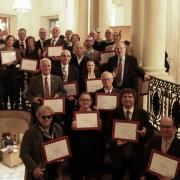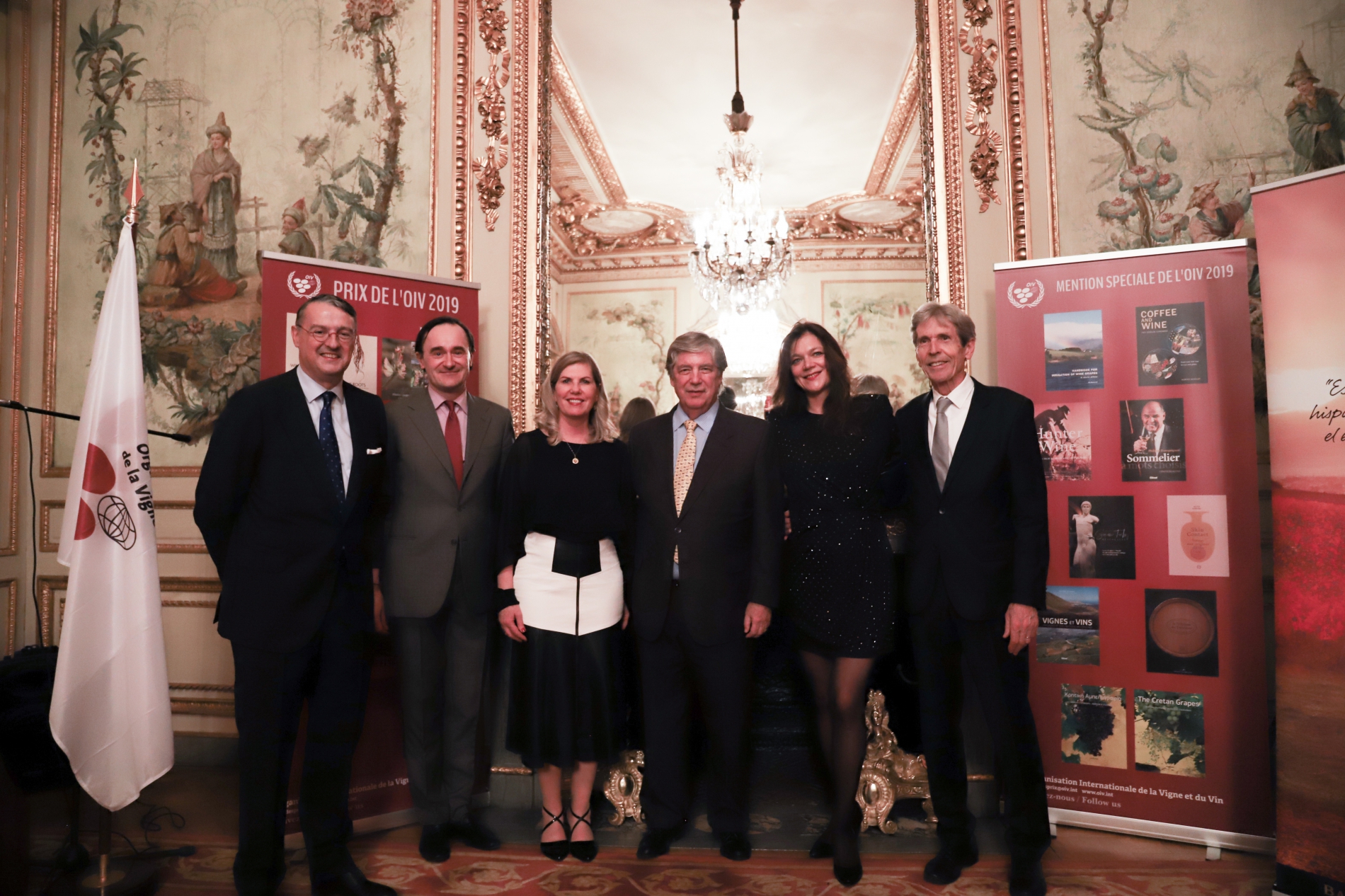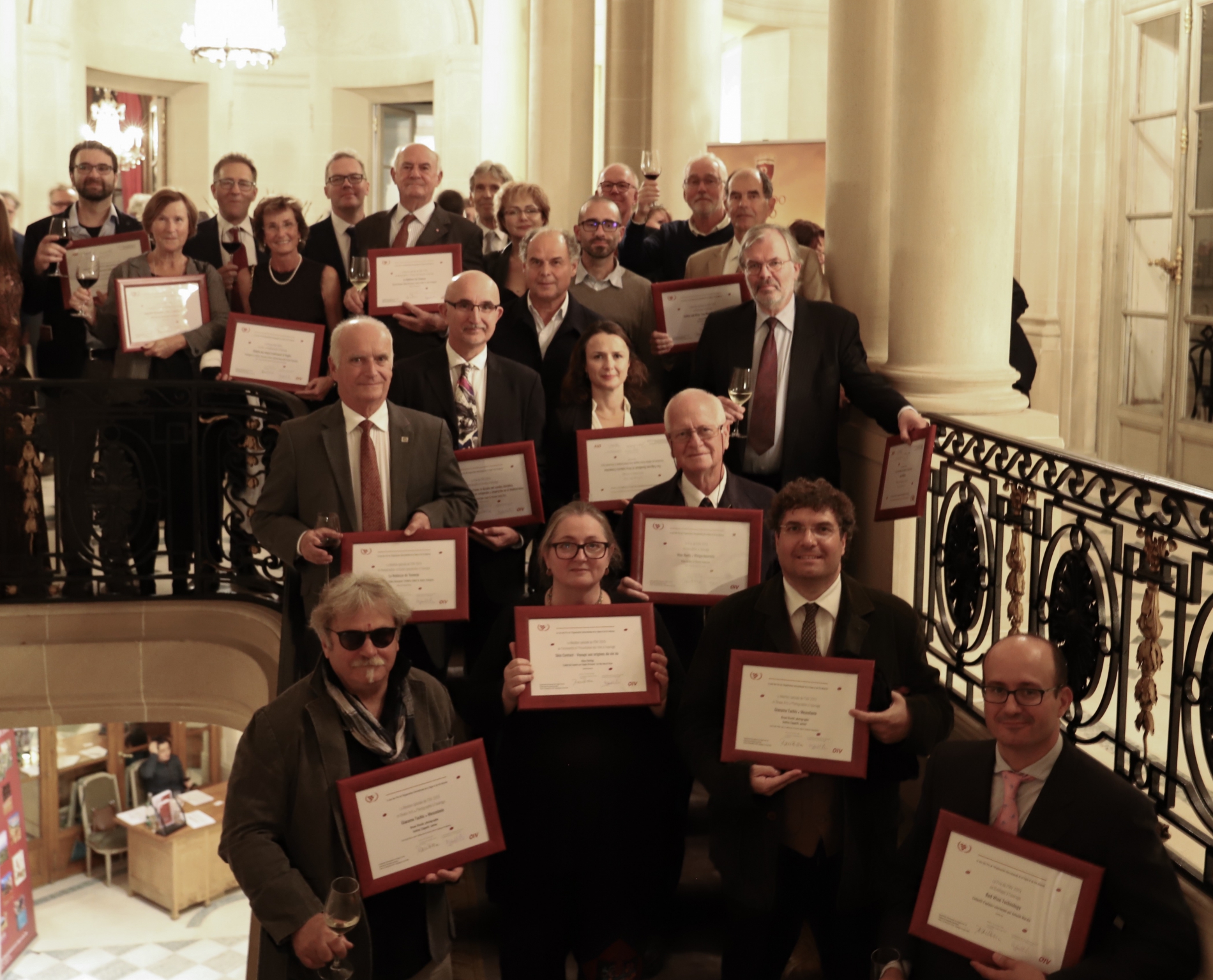
Hosted by H.E. Mr Juan Salazar Sparks, the 2019 OIV Awards ceremony was held in the suites of the Embassy of Chile in Paris. The event was attended by numerous representatives of the Diplomatic Corps, together with OIV President Ms Regina Vanderlinde, OIV Director General Mr Pau Roca, Award Jury President Ms Azélina Jaboulet-Vercherre, and Award Jury Scientific Secretary Mr Jean-Luc Berger.

The renown and prestie of this mark of international recognition were confirmed once again this year by the high quality level demonstrated by the 2019 Award winners in each of the fields represented: scientific and technical, literary, historical, and artistic.
A total of 11 Awards and 9 Special Mentions were given out by the international OIV Jury.



The repurposing of the building in rue d’Aguesseau prompted the OIV to move its Secretariat, although it will still be located in the 8th arrondissement of Paris, near Parc Monceau.
Home to the management and services functions of the OIV since mid-September, the functional and contemporary space has been renovated using cork, thanks to the support of Amorim.
Just a stone’s throw from the Place de Rio de Janeiro, dear to the President of the OIV, the new OIV premises at 35 rue de Monceau will host experts attending autumn meetings to take place in the conference centre located opposite on 14 and 15 October, and then in Val de Loire for the adoption of the 2020-2024 Strategic Plan.